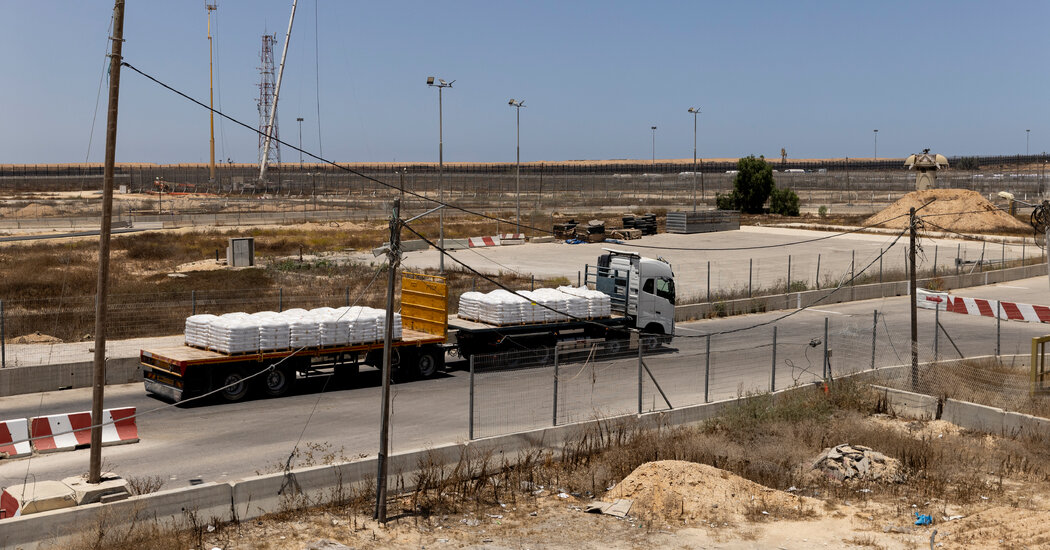Israel’s Daily Combat Pause in Part of Gaza: How Is It Working?

Israel has said that the partial daily suspension of its military activity in a part of southern Gaza, which began this week, is aimed at making it safer for humanitarian groups to deliver aid to the territory. Here’s a look at how the pause works and whether aid workers believe it is likely to alleviate civilian suffering that the United Nations says borders on famine:
What did the announcement say?
The military said on Sunday it had paused operations during daylight hours in parts of southern Gaza, addressing aid groups’ statements that active combat often prevented them from distributing food. The policy applies to a seven-mile-long strip of southeastern Gaza surrounding a major stretch of road It does not include coastal areas where Palestinians have fled since Israel began an invasion of the city of Rafah in southern Gaza in early May.
On Monday, there was evidence that it had started to take hold.
Has the pause made a difference?
Aid groups say the pause has appeared to take hold, but will not automatically translate into the free flow of aid.
Supplies are held at warehouses before distribution. Jeremy Konyndyk, president of Refugees International, said on Tuesday that it was “almost impossible” to find warehouses in Rafah, the epicenter of the aid effort, because they had been destroyed or were inaccessible.
The spokesman for Israel’s military, Rear Adm. Daniel Hagari, said on Tuesday that 1,400 trucks of aid that had been transferred from Israel into Gaza “remain uncollected” by international organizations. Before the war, the enclave had received around 500 trucks of food and other goods per day, according to the U.N. humanitarian affairs office.
The entry of aid and commercial goods through the two main crossing points into Gaza, Rafah and Kerem Shalom, has fluctuated in recent months, but it has never reached the daily levels that humanitarian officials say are needed to tackle the hunger crisis. The International Rescue Committee, which works in Gaza, said that since the Israeli offensive into Rafah began in early May “the situation has plumbed new depths.”
